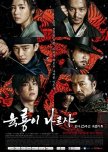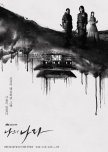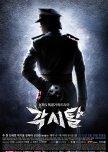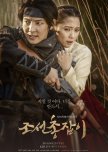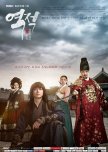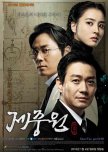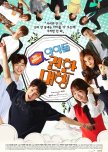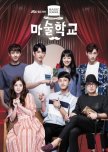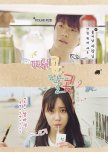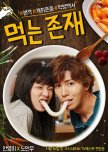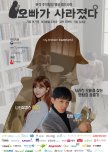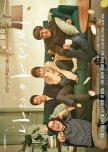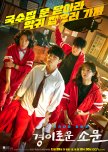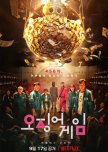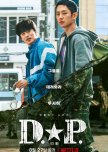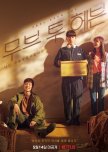 Han Ye Ri confirmed to work with Han Seok Kyu in a new thriller mystery K-drama
Han Ye Ri confirmed to work with Han Seok Kyu in a new thriller mystery K-drama - Nederlands
- 中文(简体)
- Русский
- English
- Oorspronkelijke titel: 녹두꽃
- Ook gekend als: Green Bean Flower , Nokdoo Kkot , Nokdu Flower , Nokdu Kkot: Saram , Haneulyi Dweda , Ugeumchi , 우금티 , 녹두꽃 - 사람, 하늘이 되다 , Mung Bean Flower
- Regisseur: Shin Kyung Soo
- Scenarioschrijver: Jung Hyun Min
- Genres: Historisch, Oorlog, Politiek
Cast & Credits
- Jo Jung Suk Hoofdrol
- Yoon Shi Yoon Hoofdrol
- Han Ye Ri Hoofdrol
- Park Hyuk KwonBaek Ga / Man Deuk [Yi Kang & Yi Hyun's father]Bijrol
- Min Sung Wook Bijrol
beoordelingen

Deze recentie kan spoilers bevatten
Fight for human rights. A story written with the blood of latest Joseon history. Highly valuable.
Definitely worthwile! "Nokdu Flower" offers a historically remarkable epic with a strong performance. The KDrama excels sort of. It almost seems as if the entire team was all too aware of the ambitious challenge to adequately capturing this short but crucial sequence of Korean history.In the second half of the 19th century, exploitation, famine, a corrupt, incompetent government and weak kings had eroded almost all belief in the existing system, in aristocracy and administration. Then there was the opening of the country to world politics and trades, for which the corrupt Joseon also proved to be profitable. In this historical KDrama it's not so much about the political intrigues around the palace, but about the landowners, administrative offices and Yangban in the provinces as well as the rebellion of the desperate rural people, who simply can't take it anymore.
The struggle for democracy in Korean history, like elsewhere in the world, has been quite bloody. That was last in May 1980 in Gwangju, when the democratic aspirations of the people were brutally crushed by the military. This was so during the student independence movement in 1929 in the fight against Japanese oppression. And that happened in connection with the Donghak movement, too, which had caused quite a stir throughout the country between 1860 and 1894. "Nokdu Flower" is deliberately very close to the front lines of those uprisings for democratic reforms, which then had been for the first time organized on this scale. This forms the perfect background for dramatically intertwined relationship dynamics of two half-brothers, (whose father is one of the particularly exploitative provincial officials who bleed the people dry), as well as the daughter of a merchant, who is used to deal with anybody, even the Japanese, for high profit.
The road to democracy on the Korean Peninsula is definitely rocky. To this day, the reactionary forces are still strong. "Nokdu Flower", however, represents a powerful, unforgettable symbol for the spirited struggle for freedom. The Donghak movement is often seen as the first patriotic Korean movement, since it was also about counteracting the increasing e. g. Japanese influence. But more than a patriotic struggle, initially the Donghak movement was actually about an idea that is bigger than family of origin or nation: It's about basic human rights. (An idea that, not too long before that, had also stirred up the European continent)
Matter follows spirit. And this spirit was shaken up in the rural population of Joseon by a new religious movement: Choe Je-u (1824–1864) created a new faith in 1860: Donghak, which roughly means "Eastern Wisdom". Drawing from Confucianism, Buddhism, Taoism and Shamanism, it sees the divine spirit at work in human beings - in ALL human beings, without distinguishing between class or gender. Additionally, it sees the world as moving in cycles - with a whole new world just waiting ahead.
Nevertheless, it is blood that paves the path to a new era. Eventually, the results of the first Donghak peasant rebellion included a treaty. The "Gabo Reform" recognized the new religion, and among other things, the lowest classes were freed, widows were granted the right to remarry, and penalties for corruption and abuse of office were introduced. Unfortunately, there followed a second peasant rebellion...
This is a story written with the blood of latest Joseon history, sort of.
Overall, a highly valuable production.
--------------- BY THE WAY... ----------------------
...the traditional Korean national dish BIBIMBAP is closely linked to Jeonju and to the Donghak uprising. The heart of the rebellion was in Jeolla province with Joenju being the provincial capital. Among farmers who did not have the time to prepare countless side dishes, it was common to simply mix whatever there was with rice and spices. This food proved its worth, especially when it came to feeding the rebels in their brave fight for new values and a more just future.
... the TITLE TRACK is actually a popular folk song that goes straight back to the peasant uprising. "Nokdu Flower" actually means 'blossom of the mung beans', but here it refers to the nickname of Jeon Bong-jun, leader of the peasant rebellion.
"Bird, bird, blue bird,
bird, bird, blue bird,
Don't sit in the mung bean fields.
When the blossom falls
the farmer goes to cry.
Bird, bird, blue bird,
Jeonju Gobu Nokdu bird,
why don't you fly away
The pines and bamboos are green.
We thought it was summer
yet it's bitterly cold and snowy."
The blue bird refers to the Japanese - they shouldn´t have any business in Joseon and should go away. Joenju and Gobu are legendary places of the uprising. Nokdu refers to Jeon Bong-jun´s nickname and the riot. However, Nokdu, the mung bean, also refers to an important agricultural product and food. Falling blossoms indicate a bad harvest. The 'summer' stands for the first uprising, the 'cold winter' for the second. The song was probably born during the execution of the leader Jeon Bong-jun and has since become a nationwide folk song in several different versions.
Vond je deze recentie nuttig?

[This is my first 10/10 rating; though I tried to find reasons to rate it half a point less, there were none whatsoever.]
A saeguk outside the confines of the castle and a fairytale-like setting and focuses on the common-person's fight for rights and equality? I did not realize I needed that until I watched this. A drama that does not beat around the bush and jumps straight into action? I did not realize I needed that either.
The plot is well-executed; it moves forward without losing steam and stays true to its story line and characters. Since it was based on true historical events, heartbreak and tragedies were inevitable. I appreciate, however, that it was not entirely based on real people - that is, the three main leads we have, including their families and friends, are fictional in an otherwise non-fictional historical setting. (I cannot comment on the accuracy of the historical events as I am not well-versed in Korean history, yet this compelled me to search about the Donghak movement and Japanese takeover of Joseon. I can say I am more enlightened than before, however.) The lighter, funny scenes were never out-of-place as they always centered around the heartwarming friendships between the characters. Side characters had their own story which prevented their screen-time from feeling unnecessary; even those you might be least invested in underwent growth that justified the writer's choice to include them apart from the otherwise obvious reasons. It should be noted, there were some shifts in plot that made me dread that this drama would go south, that it was headed beyond what was meant to be the conclusion, but that never happened; the plot proved itself to be excellent, and the characters served to ground and consolidate the narrative.
Now, it is time to expand more on the characters: their growth and changes were interwoven with the struggle they, willingly or unwillingly, became a part of. To be able to see many characters of varying backgrounds coming to terms with their identities, or altering them at whim, was extremely gratifying. Their decisions simply made sense, in light of their circumstances and personal convictions. The writer also drew many parallels while crafting characters - the parallels between the brothers, with the titles assigned to them that they wanted to break free from; the parallel between a teacher and a student, with their attempt to rise from their ugly decisions; the parallel between two parties who wanted to save their country, with one man joining hands with the enemy and the other party firmly resisting. And then these parallels evolved beautifully into a juxtaposition. Overall, it was a thought-provoking angle the writer took.
You might think I am being too generous, but I do have a tiny complaint about flashbacks in one or two episodes, since they felt needless, but what's a k-drama without those, eh? I have learned to take them as a necessary part of a k-drama recipe, so I am not counting it in this time around. (I guess I AM being a little generous.)
And need I mention how amazing the actors were, from the support to the main? Moo Seoung Choi was an excellent casting choice for Jeon Bong Jeon; the poise and leadership that oozed out of him stunned me, not to mention the sense of humour he possessed. Han Ye Ri is a subtle actress, perfect to portray Lady Song - calm, collected, sharp. Yoon Shi Yoon has a way with expressions, and they were more than suitable for a character like Yi Hyun. Finally, Jo Jung Sok made Yi Kang a lovable character who you wanted to root for till the end.
Loved the OSTs; the one by FORESTELLA often plays in my head. The BGM was not outstanding, but it complemented a good deal of the show. I especially enjoyed the rock music whenever action scenes came in. Adds to the excitement and just how cool the characters look!
I think this has great re-watch value. For one, it never drags, and the characters are so multi-layered, you want to come back and appreciate them. Despite knowing the plot, you might want to catch up on a few details that you may have missed, and certain impressive progressions.
Vond je deze recentie nuttig?

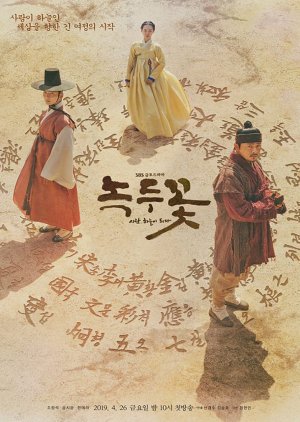






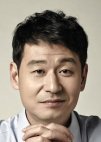

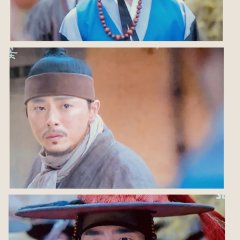
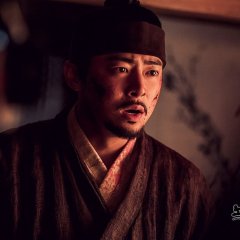
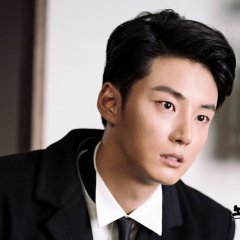
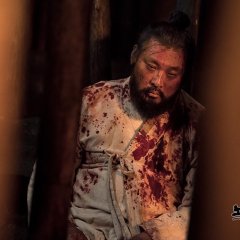
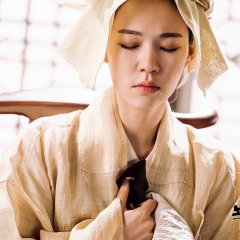
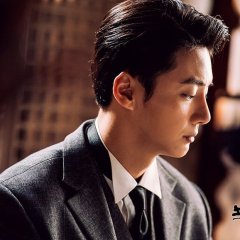
 1
1